Study in Oslo 2024
-
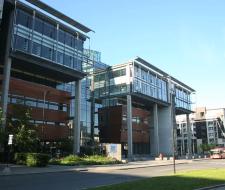 #25 World University Rankings - Masters In Marketing
#25 World University Rankings - Masters In Marketing NorwayOsloCurrently watching: 4from 8550.00 € / yearApply with documents
NorwayOsloCurrently watching: 4from 8550.00 € / yearApply with documents -
 Apply with documents
Apply with documents -
 from 203.00 $ / yearApply with documents
from 203.00 $ / yearApply with documents -
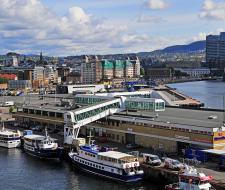 from 2020.00 € / 15 lessonsApply with documents
from 2020.00 € / 15 lessonsApply with documents
-
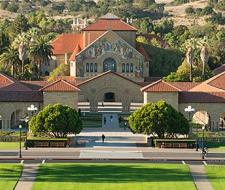 from 53000.00 $ / yearApply with documents
from 53000.00 $ / yearApply with documents -
 #2 among U.S. national universities
#2 among U.S. national universities USABoston, MassachusettsCurrently watching: 8Apply with documents
USABoston, MassachusettsCurrently watching: 8Apply with documents -
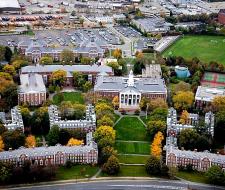 from 28000.00 $ / semesterApply with documents
from 28000.00 $ / semesterApply with documents -
 Top-50 best Marketing programs in the world
Top-50 best Marketing programs in the world SpainBarcelonaCurrently watching: 10from 4900.00 € / semesterApply with documents
SpainBarcelonaCurrently watching: 10from 4900.00 € / semesterApply with documents -
 from 27000.00 $ / semesterApply with documents
from 27000.00 $ / semesterApply with documents -
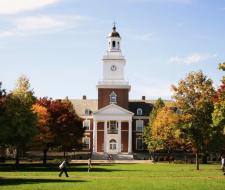 from 41320.00 $ / yearApply with documents
from 41320.00 $ / yearApply with documents -
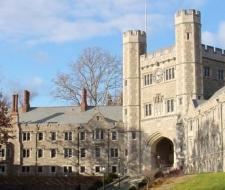 from 51870.00 $ / yearApply with documents
from 51870.00 $ / yearApply with documents -
 from 12500.00 $ / semesterApply with documents
from 12500.00 $ / semesterApply with documents
Alternative destinations
Education information
Norway is a Scandinavian country in Northern Europe, whose mainland territory includes the western and northernmost part of the Scandinavian Peninsula. Norway is a constitutional monarchy. University status can be assigned to an educational institution only with the consent of the reigning monarch of Norway.
Oslo is the capital and most populous city of Norway, as well as the economic and governmental centre of the country. It is home to the largest number of universities in Norway, and some of the higher education institutions are leaders in teaching and research activities. Due to the presence of Nobel Prize-winning teachers, Oslo is one of the best options for studying abroad.
Oslo is an important centre of maritime industry and maritime trade in Europe. Other major industries supporting the local economy are: banking, shipping, retail and insurance. The best companies with local offices are: Norsk Hydro, Petroleum Geo-Services, Siemens, H&M, Schenker, Philip Morris, Agri Foods, Opera Software, Ernst & Young. As for internship opportunities, the foreign students will be able to apply to local companies in any field where they want to gain practical experience.
Advantages of obtaining education in Oslo for foreign students
- High level of studying and work ethic. The educational process is aimed at the practical application of knowledge: for almost a year out of three undergraduate students are engaged in practical work, both in technical and humanitarian specialties. Often a teacher works with a group of 15 people. The studying of engineers (especially oil workers and builders), architects, entrepreneurs and IT specialists is particularly strong.
- Psychological comfort. Norway took the first place in the StudyPortals Foreign Student satisfaction ranking. Students note the informal approach in the classroom, the convenience of the educational process and the absence of prejudice against foreign students. In addition, according to the EF EPI ranking, Norwegians rank third in the world in terms of English proficiency, second only to the Netherlands and Sweden, which has a positive effect on the adaptation of foreign students in this Scandinavian country.
- Free doctoral studies. Since March 24, 2023, education in Oslo has become paid for foreign students. However, the government has made an exception for doctoral students — their studies are still funded by the state. The student pays only the semester fee.
- A simple admission. There is no need to take internal exams. The foreign students will need a certificate of proficiency in the language of instruction (English or Norwegian), official educational documents with an apostille and translation, plus a package of accompanying documents, which may include a resume, a motivation letter, an essay, a research plan and other standard documents.
- Norwegian standard and quality of life. The UN Human Development Report regularly notes that Norway is one of the best countries to live in. In 2019, the country ranked 1st in the Human development index. It has some of the highest salaries (9th in the world), and people on average live longer than 82 years. Although the country is the main supplier of oil from Europe, Norway itself almost does not use non—renewable energy sources (95% is hydropower). Finally, many admire the nature of Norway.
Secondary education in Oslo – stages of studying
The studying begins at the age of six. In primary schools in Oslo, the duration of studying lasts for seven years. Children are taught to write, count and read through games. Teachers introduce children to plants and animals of Norway, classes are held not only in Norwegian, but also in English. In addition to the main lessons, they study religion and economics. Each student can choose at his discretion one of the additional subjects to study. In case of failure of one of the students, a special commission supervising him determines the problems he has encountered and helps to overcome them.
Then the studying in the middle schools in Oslo begins: from the fifth to the seventh grades. In addition to general technical and humanitarian subjects, such as ecology, accounting and economics are also studied. There is an opportunity of additional study of a foreign language. There is a special subject in Norwegian schools - home economics. It teaches how to run a household: cook food, do various household chores and, among other things, teach reasonable budget planning. The student must acquire the skills to buy food wisely, to run a household. Such classes prepare children for the future adult life and teach them to spend money rationally.
The studying in high schools in Oslo lasts from the eighth to the tenth grades. In high school, subjects are added to help in choosing a profession. If desired, the students can choose a more in-depth study of them, if the students want to enroll after school in a higher educational institution of the country. There is an opportunity of obtaining a profession. For this purpose, there are departments of professional skills in high schools. For two years, students study working professions according to their preference: carpenter, builder and others. Then they undergo practical preparation at enterprises. After completing 2 years of practice, the student receives a diploma of obtaining a profession.

What do parents typically consider when choosing a school, in addition to teacher qualifications?
Parents have various criteria. If choosing a more affordable private school, ensure it's genuinely high-quality. Location, overall expenses, cultural programs, boarding house conditions, and level of care should be considered. Once narrowed down to a few schools, it's beneficial to meet and communicate with their representatives and form a personal opinion.
Universities in Oslo – specifics of studying
Norway has been participating in the Bologna Process since 2003, so the stages of education at universities are similar to other European countries and includes three stages: bachelor's, master's and doctoral studies.
It takes three years to obtain a bachelor's degree at universities in Oslo, a master's degree takes two years, and a doctorate degree takes another three years. The foreign students can also choose a single-tier master's degree, allowing you to combine a bachelor's and master's degree in one continuous program lasting five years - this is often offered for architecture, business management, engineering, dentistry and law programs.
The academic year is divided into 2 semesters. It starts in August, so foreign students submit documents to state universities strictly before December 1, and in some private universities the reception of documents is open until the beginning of May.
At the universities in Oslo, most undergraduate programs are taught in Norwegian, and the foreign students can also apply for a one-year intensive Norwegian language course before enrolling.
Also the students can continue their studies in Norwegian if they have a Bergenstest diploma, which is a Norwegian language proficiency test. At some universities, Swedish and Danish are considered equivalent languages of instruction.
Most postgraduate diplomas are taught in English, and the foreign students must meet the English language proficiency requirements: high IELTS or TOEFL scores.
Additionally, the foreign students can enrol in various university short-term courses during the summer school in the following areas: Norwegian History, human rights, international politics and many other topics. The most popular educational programs available for all levels of education (bachelor's and master's degrees, doctoral studies) are:
- Economics
- Political science
- Psychology
- Technology
- Law
- Natural sciences
- Media
- Medicine
- Education
- Nursing
- Business
- Finance
- Marketing
- Design.
The foreign students will find many doctoral courses in popular subject areas such as psychology, education and finance.



